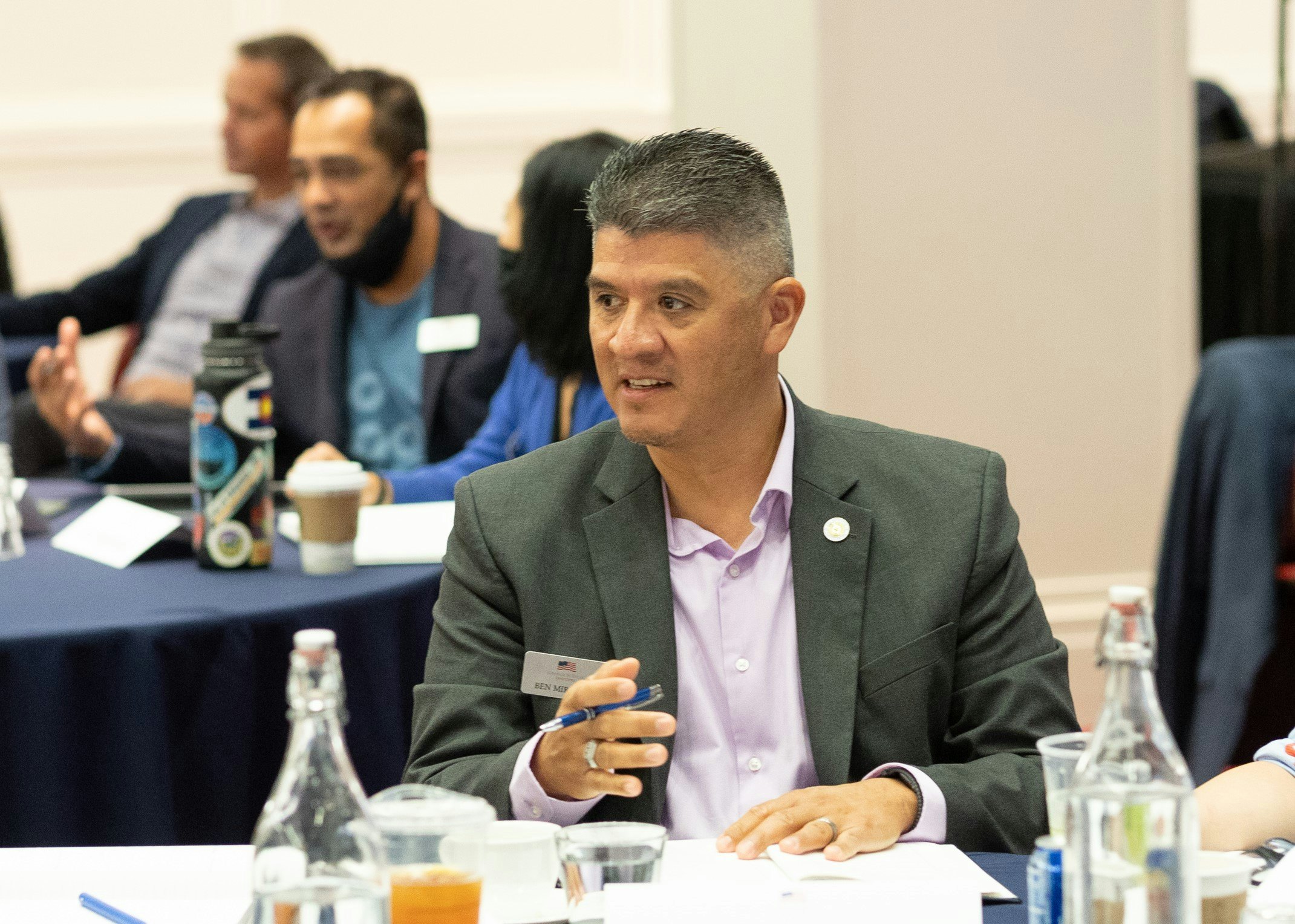Social interaction is a basic human need. And a gathering with purpose can help solve complex problems and forge life-altering relationships, as Priya Parker writes in her 2020 book, The Art of Gathering: How We Meet and Why It Matters.
This is precisely why we brought 90 Stand-To Veteran Leadership Program alumni together for our 2023 Alumni Reunion. We already know that the convening power and energy levels of this group are unmatched. But we sought to unite them around intentional networking moments so that they can further both their own growth and the work they are doing to support our nation’s veterans and military families.
As I sat in the Bush Center Auditorium and watched a group of alumni focused on work in veteran health and well-being, I heard myriad offers of help: an introduction to a colleague with certain expertise, sharing of reports and resources to move work forward, invitations to conferences and events. None of those offers took more than five minutes to extend or to execute.
That’s the magic of purposeful gathering. When you bring together a group of people with a shared purpose and thoughtful guidelines, they buy in and commit to making a difference.
The enthusiasm was palpable from the moment the group arrived at the Bush Center on Sept. 7. Veteran Leadership Program facilitator Todd Connor welcomed the group and reminded attendees that program alumni have an obligation to use their experience and their network for good. They broke into small groups based on the year in which they completed the program to reconnect with those they may not have seen in a while.
These peer groups represent the closest ties in a Scholar’s network, and our diligent Veteran Leadership Program Alumni Committee organized activities to reaffirm those ties. After joining forces with the Class of 2023 for a decision-making activity with David Rubenstein Fellow Keith Hennessey, the cohorts dispersed once again to connect over casual dinners.
Reunion day two offered a jam-packed agenda. Right from the start, participants engaged in our second purposeful networking element: connecting with those who live near them. During breakfast, alumni and Class of 2023 Scholars were asked to sit at tables based on geography, and our team got to watch the fun happen as people met previously unknown neighbors. Here, we tapped into the Scholars’ weak ties: there is an element of connectivity based on where they live, but a strong connection doesn’t exist… yet.
As the reunion progressed, attendees heard from Rajeev Ramchand of RAND, Senior Advisor to the Bush Center Kevin Sullivan, Bush Institute Executive Director David J. Kramer, Director of Veteran and Military Families Jason Galui, and Director of Leadership & Programming Kelley Jiou. As programming came to a close, we asked the group to split into groups based on the areas in which they work, either in their day jobs or in personal projects, for one final intentional networking experience: the Reciprocity Ring.
In this activity developed by Adam Grant, participants form a circle. Each person takes a turn sharing a challenge they are facing or a problem they have had a difficult time solving. Then, every person around the ring offers a suggestion to help the challenge-poser, whether that offer of help comes from them or someone in their network. The idea, as stated by Grant, is that these small acts, taking five minutes or less to complete, can have a bigger impact than we might initially think. Five-minute favors, he says, are key to creating a culture of help-seeking and help-offering, which we know creates great impact.
The end of a gathering is just as important as defining the purpose that drives the group together. As Parker says, part of preparing guests to leave the gathering and re-enter the world is, “helping them find a thread to connect the world of the gathering to the world outside.” The thread can be a physical symbol, a verbal or written pledge, or a commitment to themselves, Parker says.
For the alumni who attended the Veteran Leadership Program reunion, that thread is a call to action delivered by Connor. He urged participants to take the connections made during the gathering and continue to grow them, no matter how busy things get. Whether those connections were forged with classmates, with people living in proximity, or with people working in similar spaces, he reminded everyone that this network has the power to change lives for veterans and military families.
Veteran Leadership Program alumni, there’s your reminder: use your network, support your network, and go forth to enact courageous change!































